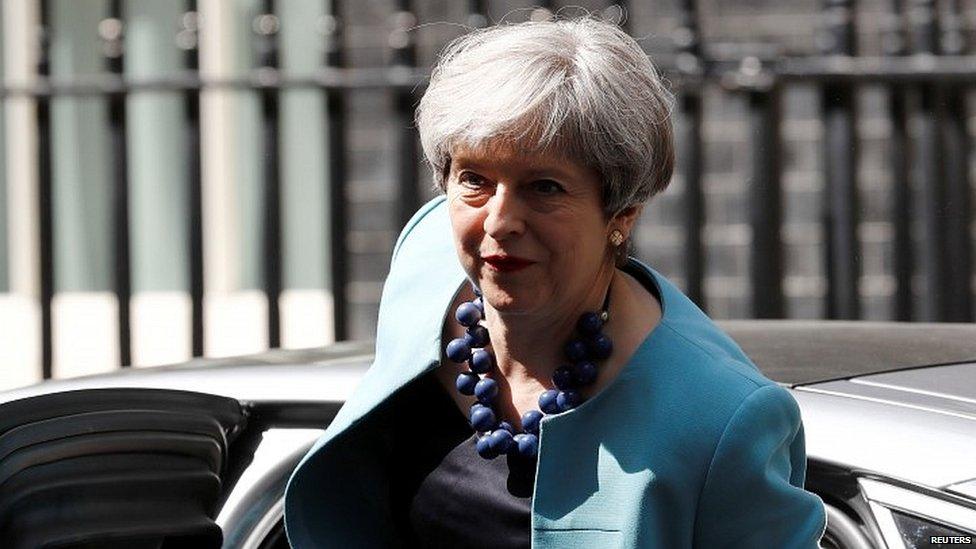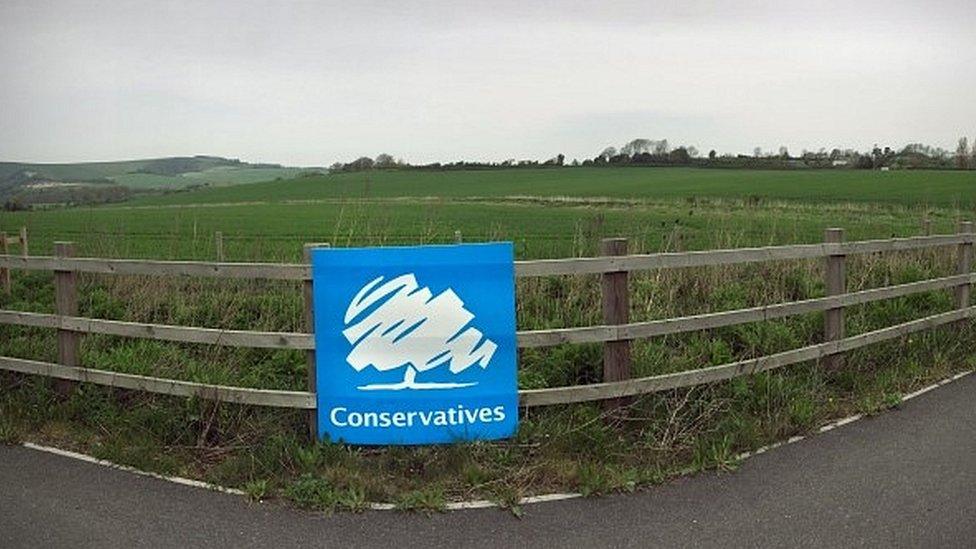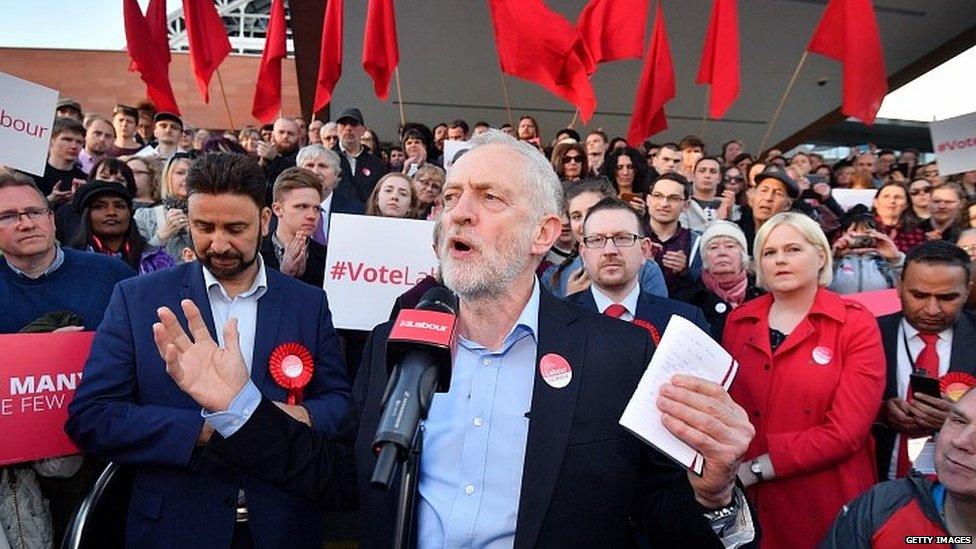Nick Timothy says Tory campaign was a 'failure'
- Published

Mrs May took centre stage in the Tories' election campaign
One of the architects of the Conservatives' election campaign has described it a "failure".
Nick Timothy, Theresa's May ex-chief of staff, told the Spectator, external he had wanted to run a less presidential campaign and involve ministers more but external "consultants" had advised against it.
Big ideas championed by the prime minister when she had first taken power had been underplayed, he said.
One Tory MP has called for the party to be renamed after the election result.
Robert Halfon told the BBC his party faced years in the "wilderness" unless it broadened its appeal to working people.
The Conservative inquest into Theresa May's failure to win an overall majority is continuing, with senior figures saying the party must learn hard lessons.
Mr Timothy and his colleague Fiona Hill were blamed by many for what was widely regarded as a poor campaign and both resigned in the wake of the result.
The Conservatives framed the election as a straight choice between Theresa May's "strong and stable" leadership and Jeremy Corbyn's "coalition of chaos".
Cabinet ministers such as Chancellor Philip Hammond and Foreign Secretary Boris Johnson were rarely heard from.
'Eschewing instincts'
In an article for the Spectator, external entitled "where we went wrong", Mr Timothy acknowledged the party had not got its message across properly and there had been too much emphasis on the prime minister at the expense of others in the party.
"Because this election failed to produce the majority we needed, it is impossible to call the campaign anything but a failure," he wrote.
"Theresa, never comfortable hogging the limelight, expected to make more use of her ministerial team.
"On the advice of the campaign consultants, and following opinion research that showed Theresa to be far more popular than the party or her colleagues, we eschewed our instincts. We were wrong to do so."
He suggested the themes that Mrs May had set out when she became prime minister, such as a greater role for the state to boost economic opportunities, intervention in dysfunctional markets and reforms to make the UK a "great meritocracy", had not been fully articulated.

Mr Halfon says the party "must explain on the tin what it does"

Mr Halfon praises the campaigning zeal of Labour and the Momentum pressure group formed by supporters of Jeremy Corbyn
But he warned that there were no easy answers to the challenges facing the UK, warning the current policy of funding social care primarily through general taxation - which the manifesto proposed changing - was "unsustainable" and "socially unjust" on younger people.
"One of the criticisms is that, instead of offering voters giveaways and bribes, we spelt out where cuts would fall. While I accept that the manifesto might have been too ambitious, I worry that the implication of this argument is that politicians should not be straight with the electorate."
He added: "I fear the election will cause many to conclude that we should return to the modern consensus politics of pure social and economic liberalism, which I believe is one of the causes of the division we see in Britain today."
The Tories lost their majority despite getting their biggest vote share since 1983. Theresa May remains in office as prime minister but will be reliant on the votes of the Democratic Unionists to keep her in power.
Writing in the Sun, external, Mr Halfon said the party had now failed to win a "big" majority for 30 years and radical changes were needed.
Mr Halfon, who was sacked in a post-election reshuffle, said they should change their name to the Workers Party or Conservative Workers Party and the party should develop a campaigning arm along the lines of Momentum or Vote Leave.
'Tory stereotype'
The MP for Harlow said the Tories faced a rejuvenated Labour Party with a campaign infrastructure his party "could only dream of" and a "noble and powerful message" about transforming the lives of the poor.
In contrast, he said, the Conservatives' core message of aspiration and opportunity had been "lost" during a campaign in which they had allowed themselves to be painted as the "party of austerity".
"Historically the public are wary about giving the Conservatives a big majority because they fear we will revert to the stereotype of not being on the side of ordinary working people, white van man and women," he wrote.
"Much of what we said - and failed to say - in the election - compounded that fear.
"Action to reshape the party's image and its heart is now vital."
He suggested the party changed its name to the Workers Party or Conservative Workers Party and sell itself as the party "of the ladder - the party has to explain on the tin just what it does".
He told BBC Newsnight "It can't just be a rebranding, it can't just be a slogan. The prime minister said we were the workers' party, at the party conference.
"But we've got to make it mean something.
"And I think that we have to actually build our policies based on five pillars - we should be a real modern trade union movement for the British people - five pillars of workers' rights, workers' jobs and skills, workers' wages, workers' welfare and workers' services."